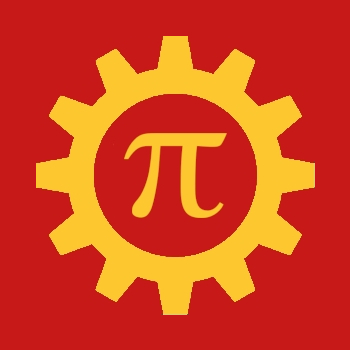So I found out about Marx’ mathematical manuscripts, so I say “Hey, I’ve been studying mathematics this year at university. I understand limits and derivatives, maybe I can understand something of that gibberish.” So I see the titles and the one called “On the Concept of the Derived Function”, I go there and I see some notation I don’t understand, he speaks about things I’m not clearly understanding, so maybe some of you could make it clear.
For example:

Why is this x sub 1 notation? Is this some other way to write derivatives? Because on the footnotes it says this:
- In order to avoid confusion with the designation of derivatives, Marx’s notation x´, y´, … for the new values of the variable has been replaced here and in all similar cases by x1, y1, …
Then I saw a talk about Marx’s mathematics and the infinitesimal and some of that stuff, but the one who was speaking didn’t went much into the mathematical part but was more like a history talk on how the Chinese were interested in the propositions of Marx because it liberated calculus from the idealist veil with which it was conceived by Leibniz and Newton, but the one who was talking mentioned Marx learning mathematics with whatever he had around and didn’t managed to read Cauchy so we was like “Yeah this is nice but it’s al shit now we have proved it fully works.” But well, he seems a bit biased, since he’s a Usonian, so maybe Marx’s writings are still relevant, I don’t even know who the fuck Cauchy is, so yeah, help.
Text: https://www.marxists.org/archive/marx/works/1881/mathematical-manuscripts/ch03.html


Thanks again for your impressive response, sorry for not being able to add much to the beginning of your reply, but I agree completely and this has made me change the way I perceive mathematics, I will try to read these texts as soon as possible to see if I can get a better grasp of mathematics from a dialectical materialist point of view.
I really agree with this part, I don’t think most of our class really understand what a derivative is and how to get there, myself included, possibly. With the limit definition of a derivative you mean for example how you get from
X³to3X²? If that’s so, it’s one of the things they taught us the less, that didn’t even entered in the test, whenever we needed to derivative we just used the rules you mention.Isn’t this also a bit related to integrals? Since you are always working with abstract ideas in order to calculate the area of a surface. I haven’t worked with any integrals, though, just know what they are and they will teach it to me at the beginning of this year.
Thanks a lot for the good words, but I wish curiosity alone would produce better results, I drop out of high school and I was taught terribly at it so I’m struggling a lot, plus they basically told us “You already know x, y, z concepts” so I had to study some other stuff (which are basic, but I didn’t know them) on my own, and our physics teacher was the worst, she basically got mad at us because we didn’t understand physics… So yeah. Basically what you are saying is that mathematics serves to understand philosophy rather than numbers, lol. At least it works to understand the ideas behind how reality is structured, with which together with dialectical materialism can provide a huge tool to understand systems and concepts.
Well, good thing I created this post, then, lol. My Systema teacher (Russian martial arts) always tells me “Estudiante siempre, maestro a veces” (“Student always, teacher sometimes”) so I’m glad I also managed to give you something in return for your time invested.